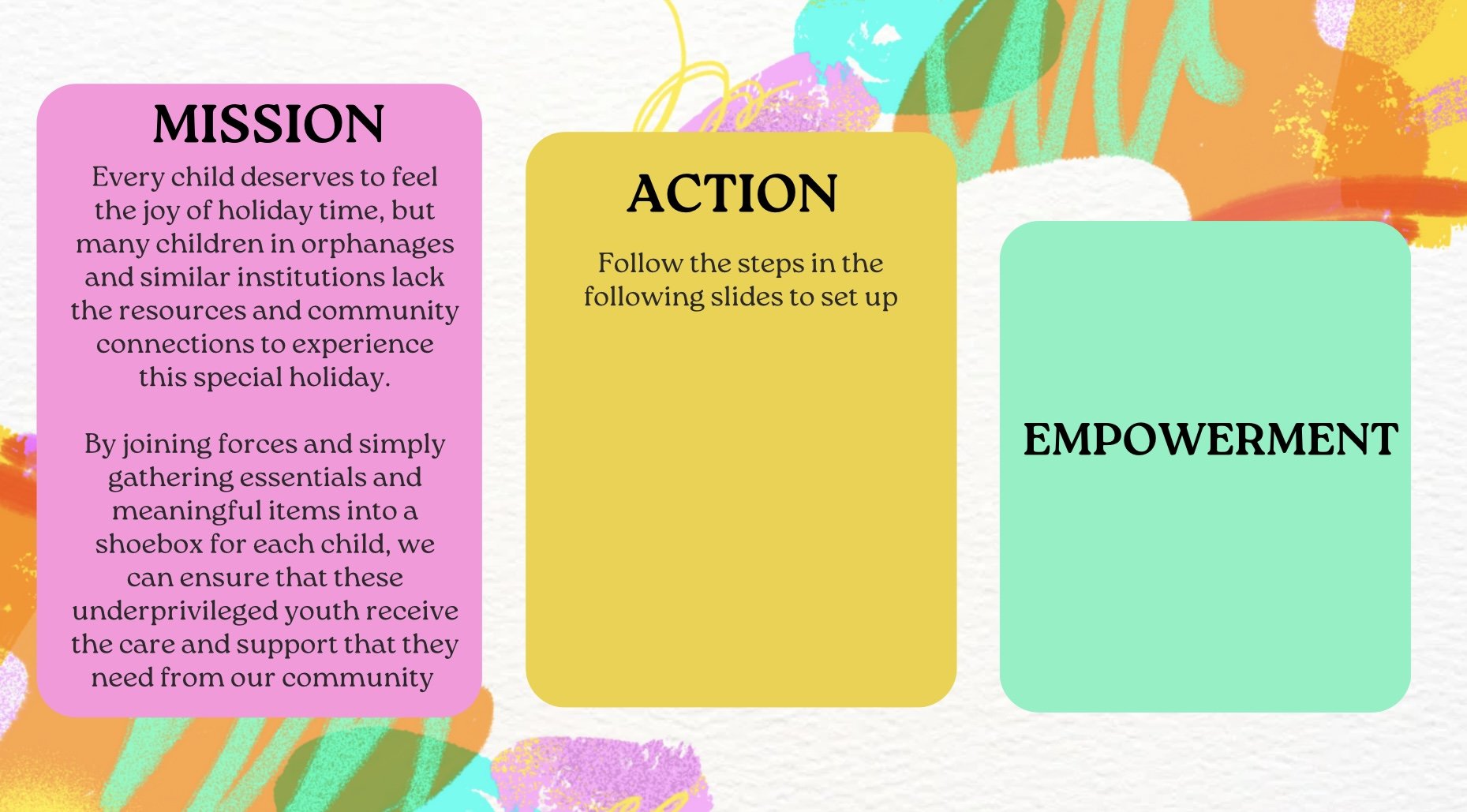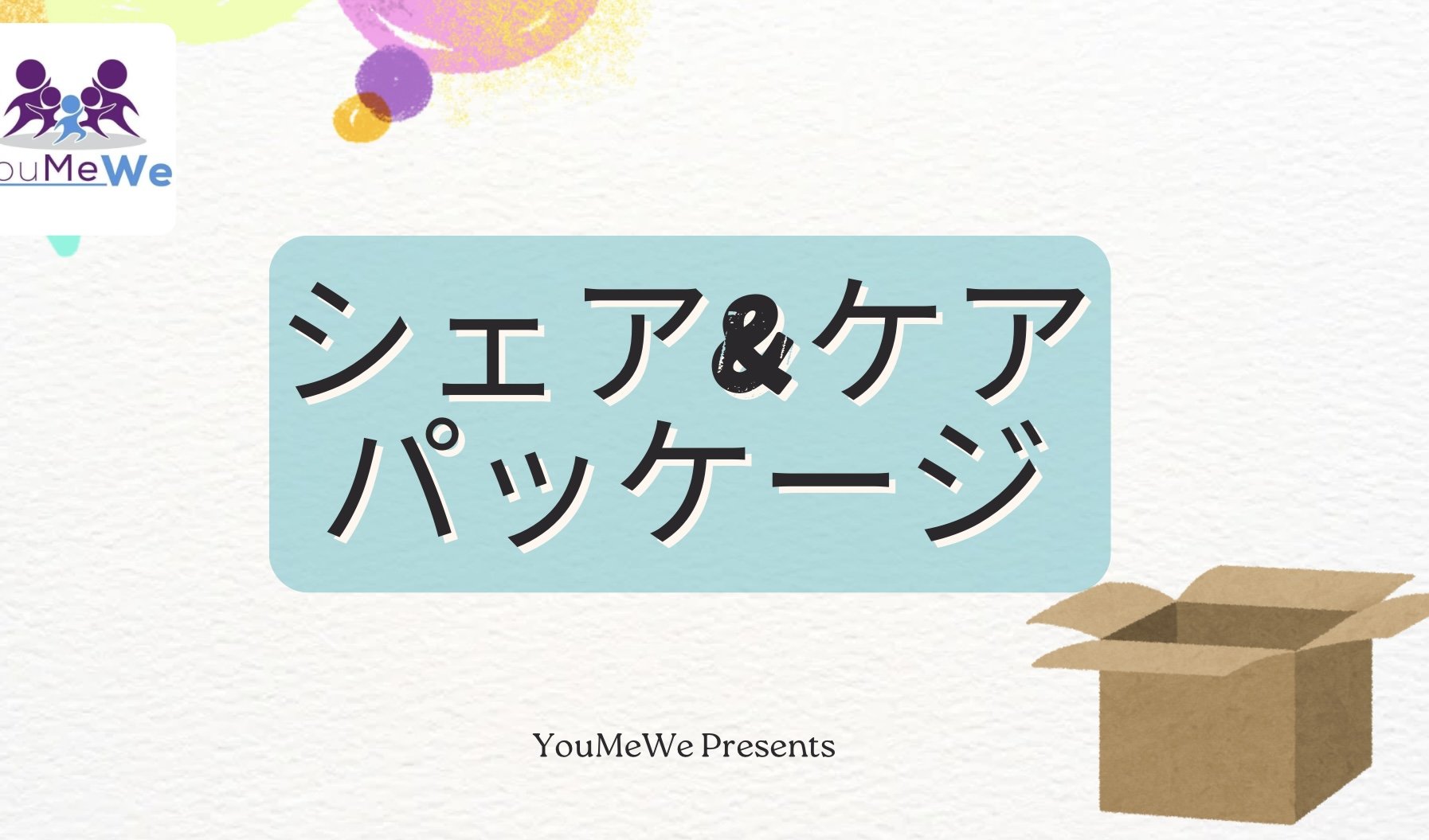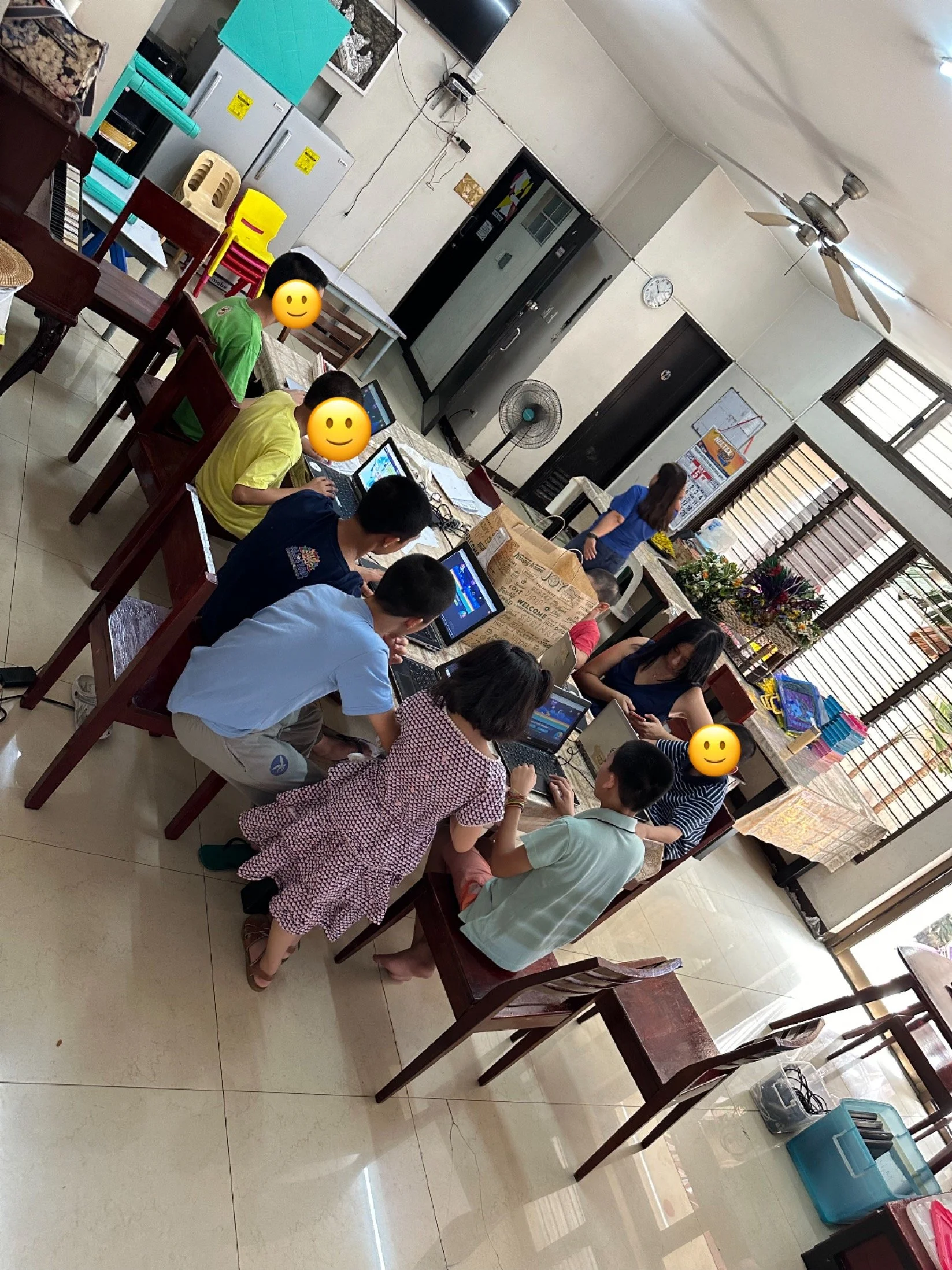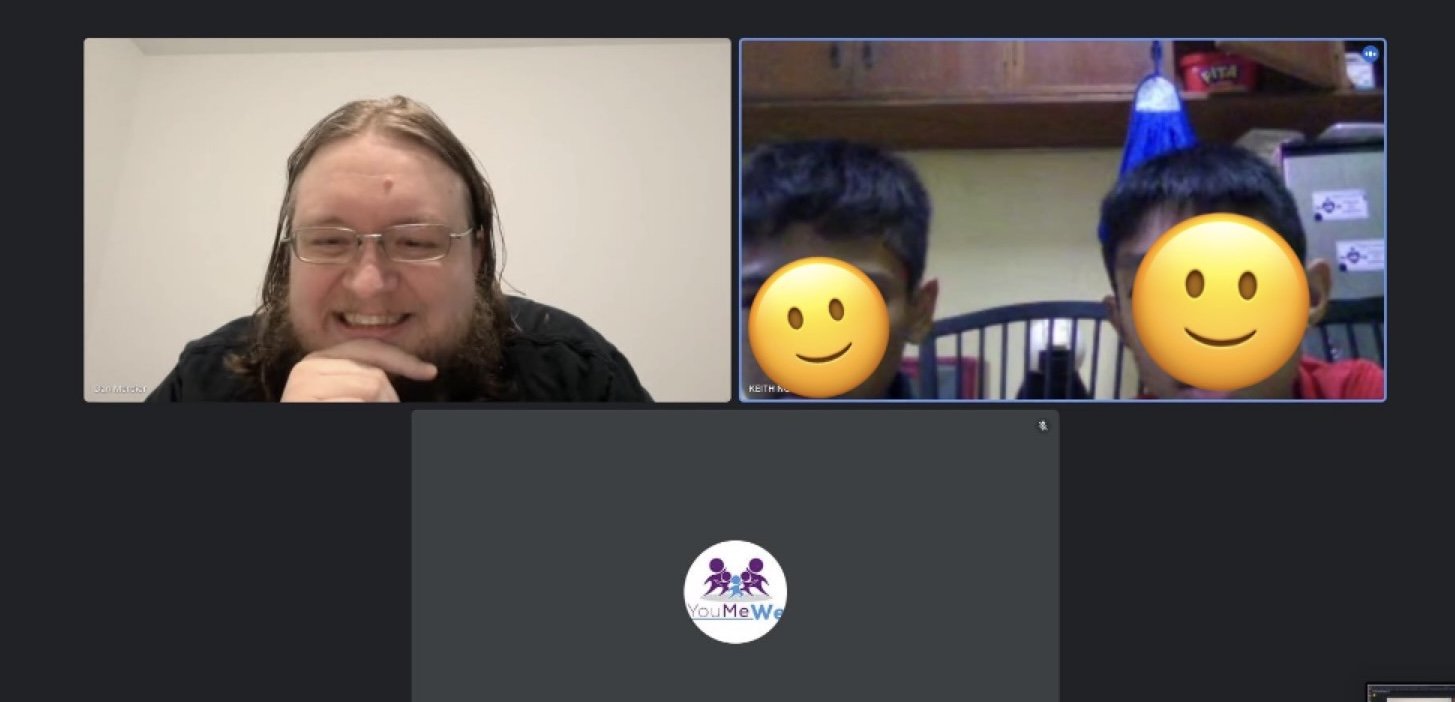New intern Stephan!
Hello! My name is Stephan Wiltschut, and I am really excited to join YouMeWe this coming season. I was
born in the Netherlands and moved to Suriname when I was seven, where I completed my elementary
education before returning to the Netherlands for high school. This experience gave me a unique
perspective on education and its importance. I am currently a third-year student studying International
Social Work at HAN University in Nijmegen.
I am grateful to be interning at YouMeWe because they allow me to see the positive impact of community
driven initiatives firsthand. I’m excited to learn from the team and contribute to the work we’re doing
together.
Thank you Daughters of the American Revolution!
Please check their website here: https://www.dar.org/
Thank you Societe Generale!
please check their website here: https://www.societegenerale.com/en
DAA Artists: Reiji Uemura
We would like to give a warm thank you to Reiji Uemura for volunteering as an artist at this year’s DAA! Reiji is a Horizon Japan International School graduate who works part time as a photographer for HJIS. He held a film making class at DAA in which the kids wrote and shot a short movie which Reiji later edited.
DAA Artists: Touchy the Human Camera
Introducing Touchy the Human Camera! Touchy is a performer who wears a digital camera on his head that takes a photo of what he is looking at when he is touched. The photo is then displayed in a screen on the back of the helmet. He attended the final day of DAA and helped close the camp with a unique and memorable experience for the kids and the volunteers. Thank you for you volunteering, Touchy!
Pizza Party with Amazon!
Yesterday, we were able to hold a pizza party at a home thanks to the help from volunteers from Amazon, YFF, and YMW. The kids enjoyed a presentation by the Amazon volunteers about the various countries they came from and then drew pictures of what they learned. The younger kids got to make accessories with beads and play with nanoblocks. Afterwards, we all had pizza and fried chicken together and finished off the night with some ice cream! Thank you to everyone who attended and made this event a huge success!
Thank you Gensler!
We would like to thank Gensler for their support in YouMeWe's cause!
Here below you can find some words about the firm:
“At Gensler, the value of our work stems from its positive impact on the human experience. We are a dynamic and collaborative design firm uniting creativity, research, and innovation to solve complex problems for our clients. Our work challenges conventional ideas about architecture and the built environment. We aren’t just designing buildings — we are reimagining cities and places that make a difference in people’s lives."
For more information check: https://www.gensler.com/about
The price of inaction: the global private, fiscal and social costs of children and youth not learning
Out-of-school children and educational gaps cost the global economy $10,000 billion a year
While 250 million girls and boys are currently excluded from access to education across the globe, a new UNESCO report analyzes for the first time the economic and societal cost of educational deficiencies. Audrey Azoulay, Director-General of UNESCO, calls on the Organization's Member States to break the "vicious circle" of school drop-outs as quickly as possible.
© UNESCO Islamabad Asad Zaidi
17 June 2024
Last update:5 July 2024
Download the full report: The price of inaction
10,000 billion dollars a year – the global cost of school drop-out and lack of education is staggering. In addition to these financial considerations, there is a considerable social impact. The message in this UNESCO report is clear: education is a strategic investment - one of the best investments for individuals, economies and society as a whole. I call our member states to ensure that this universal right becomes a reality for every human being as soon as possible.
Audrey AzoulayUNESCO Director-General
In 1948, education was declared a "universal human right". This right was reaffirmed in 2015, when the United Nations defined access to quality education for all as a Sustainable Development Goal. Yet, despite decades of progress in access to education, 250 million children and young people worldwide are still out of school, and 70% of 10-year-olds in low- and middle-income countries are today unable to understand a simple written text.
In a new report published on Monday, entitled "The price of inaction: The global private, fiscal and social costs of children and youth not learning" [1], UNESCO puts the cost to the global economy of school drop-out and education gaps at $10,000 billion a year by 2030, equivalent to more than the annual GDPs of France and Japan combined.
Conversely, the report estimates that reducing the proportion of early school leavers or those without basic skills by just 10% would increase annual GDP growth by 1 to 2 percentage points. Education therefore appears to be one of the best investments a country can make.
Beyond these financial considerations, the report warns of the significant social damage caused by these educational shortcomings. Gaps in the acquisition of basic skills are associated, worldwide, with a 69% increase in early pregnancies among young girls, while each year of secondary education contributes to reducing the risk of girls marrying and having a child before the age of 18.
10 recommendations for quality education for all
During a gathering of education ministers on Monday at UNESCO headquarters in Paris (France) – in the presence of Gabriel Boric, President of Chile, who co-chairs with the Director-General the High-Level Steering Committee for Quality Education for All – Audrey Azoulay called on the Organization's 194 member states to "respect their commitment to transform education from a privilege to a prerogative for every human being throughout the world". The Director-General also recalled that "education is an essential resource for meeting the challenges of today, from poverty reduction to the fight against climate change".
To achieve the goal of quality education for all, the UNESCO report provides 10 recommendations. The first of these is that governments should guarantee free, publicly-funded schooling for every girl and boy for a minimum of twelve years. Such schooling must go hand in hand with investment in early childhood, to lay the foundations for learning as early as possible and combat inequality. “Second-chance" programs must also be set up for young people who have not been able to benefit from a quality education, or whose education has been interrupted.
The learning environment must also be both safe and inclusive. UNESCO calls for short distances between children's homes and their schools, especially in disadvantaged areas, and for all schools to have access to water and sanitation. Class sizes must be kept small, and lessons taught by qualified, motivated teachers who support all pupils in an equitable manner, paying particular attention to gender equality.
UNESCO also encourages States to sensitize local communities and families to the importance of girls and boys completing a full cycle of education, and to involve parents in school activities and management.
[1] Published in partnership with the OECD and the Commonwealth Secretariat
Read more
How YMW contributes to the prevention of child poverty in Japan.
YOUMEWE has been dedicated to combating child poverty and aiding underprivileged children throughout Japan for an extensive period. The organization extends its outreach to orphanages nationwide, offering educational programs and various services to the children residing there.
A particular emphasis lies in equipping orphaned children with computer literacy skills essential for their future integration into the contemporary workforce. As these children transition out of orphanages, YOUMEWE provides them with high-quality computers to support their academic pursuits or employment prospects, recognizing the growing necessity of computer proficiency in many professional fields in Japan.
Acknowledging the indispensable role of technology in today's job market, YOUMEWE diligently endeavors to bridge the digital divide for children lacking familial support, ensuring they have access to modern technological resources.
Furthermore, YOUMEWE actively engages with orphanage staff to identify the specific needs of the children, furnishing tailored items such as clothing for sports events, fishing gear for recreational outings, winter apparel for travel, and indoor games to enhance their quality of life and provide safe recreational activities during summer.
An integral component of YOUMEWE's holistic approach to supporting children involves fostering a supportive network. Recognizing the vulnerability of young adults leaving orphanages and facing potential homelessness and poverty, YOUMEWE cultivates a network comprising students, volunteers, educators, community members, and organization personnel. This network serves as a safety net for youths in distress, offering a vital support system to navigate challenging circumstances.
Time and again, YOUMEWE has been a beacon of hope for young individuals seeking assistance during periods of homelessness or urgent medical needs. As a vital resource for many children across Japan, YOUMEWE serves as a crucial lifeline, empowering them to lead fulfilling lives and evade the grips of poverty.
https://www.japantimes.co.jp/news/2024/08/20/japan/japan-child-poverty/
DAA Artists: Kasahara Kaori
Kasahara Kaori
Graduated with a Master's in Counseling from Tsukuba University
Taught at a junior high school in Yokohama for over 20 years.
Since the 2023 academic year, has served as the Representative of Art Mirai-zu, an organization that conducts workshops designed to enhance non-cognitive skills through art. These workshops are offered to companies, schools, adults, and children.
YouMeWE Institute Incorporated, Philippines
Why are we in the Philippines?
As we know Japan has more people over 65 years old per capita in the world and less under the age of 15 years old.
We see opportunities for the children we support in Japan who can have opportunities to teach Japanese online to Filipino nurses passing the Japanese nurse exam in our collaboration in Boracay. There is a demand for 1,000,000 nurses in Japan. Not just in hospitals but taking care of the aged population.
We see that people graduating from university in Japan and almost 99% of the graduates being hired may NOT be doing jobs in construction, convenience stores, or fast food jobs.
More and more we are impressed with what we see in the Philippines. The GDP is growing and the population will continue to have more opportunities as the economy grows.
In the past week, we visited the orphanages in the Philippines we support, SOS Village, Thanang Ng Pagmamahal, Nazareth Home for girls, and now Pangarap Foundation.
Whilst we are located in Las Pinas we started to reach out to homes in Las Pinas like Nazareth. This home is run by nuns and for girls not only in school but as accommodation for aged out youth.
They bake bread on the weekends and serve the community.
They also have an electric vehicle which they use to deliver elementary school children to school but it has become unrepairable after much investment. The need for a reliable is essential because too many times the e-truck breaks down in bustling traffic and the sister has to escort the kids to the sidewalk and to school as they come back to deal with the e-truck.
<The green e-truck needs at $2,000 donation to replace with the Orange Truck on the right>
We then reached back to Thanang Ng Pagmamahal who house babies from a week old up to about 11 years old.
Children in the Philippines tend to be adopted domestically until two and a half years old. From two until about eleven years old they tend to be adopted by foreign families. Yet, post 11 years old, they are moved to a more permanent accommodation.
Though we are teaching them weekly English and coding lessons, when we learn that a child has moved on, we have contacted and connect with their new homes and started to teach them there. Everyone needs to know that YouMeWe measures our success in decades because it takes decades to work with the children and make the effort to stay with them so they know they are important and part of something bigger than themselves.
We have set up at SOS Village with one dozen computers and will soon start weekly lessons with them. They have over 103 children.
Finally two boys transferred to Pangarap Foundation.
Set up to take in street boys and others transferred in from other orphanages they have a history of helping the inhabitants excel and move forward in life.
We visited their library and started lessons with them this week.
Tade Kimura
I am an architecture student with a passion for sketching daily life. I find origami to be a simple yet elegant form of art that requires a deep understanding of its logic to create something beautiful. As a child, I folded origami every day, starting with easy designs and progressing to more complex ones. From this experience, I learned that simplicity in design is not necessarily inferior to complexity.
What I want people to understand is that there is art in both simplicity and complexity, and behind any design, a certain level of logic is always at work. Origami encapsulates this principle exceptionally well. Although origami is generally viewed as a solitary activity, I want to explore ways to turn it into a group endeavor. For instance, while "Senbazuru" involves making thousands of cranes and can be seen as a collective effort, the actual folding is done individually. What if there were a way to fold a crane together as a group?
Mutsuki Ebata
Mutsuki Ebata(Japanese: 江幡 睦, Ebata Mutsuki, born January 10, 1991) is a Japanese kickboxer, currently competing in the bantamweight division of RISE and SNKA joined DAA. We were not sure what quite to expect but it ended up being an hour of the most fun. Kids heard his philosophy and then practiced kicking with spotters, stretching and having a ball.
Pangarap Foundation, Philippines
We have continued with two boys who moved from the previous orphanage to a more permanent home as they are over 12.
In the Philippines children tend to be adopted up to 2 1/2 years old and from 2 1/2 years old to about 11 they tend to be adopted by overseas families but once they reach 11 or 12 they’re moved into more permanent accommodation has its most likely they will remain in care until they turn 18.
YouMeWe continue with the children until they reach adulthood and then afterwards remain as coaches.
DAA Artists: Arjun Shrestha
Arjun Shrestha is a 22 year old artist from Nepal living in Japan for over a decade. They do art in many forms some of which include 3D sculptures, painting and digital art. They are also currently Temple University of Japan as an art student.
Arjun will be teaching book making, a simple accordion style that plays with long images, interesting storytelling and fun ideas!
DAA Artists: Brian & Yuko
Brian Scott Peterson and Yuko Yoshikawa are the dynamic duo behind “Photohoku” the photo-giving volunteer project. With a passion for people and a commitment to community service, they use the power of photography to foster healing and hope. Their initiative, Photohoku, was born in response to Japan's devastating 2011 Tōhoku earthquake and tsunami. By providing family photo albums to disaster survivors, Brian and Yuko aim to help rebuild lives and preserve precious memories.
Brian, an American photographer with a keen eye for capturing the human spirit, teamed up with Yuko, a Japanese visual artist with a talent for organizing impactful community projects. Together with teams of volunteers and supporters, they have traveled extensively throughout the affected regions, volunteering their time and skills to bring joy and resilience through photography. Their work documents the recovery process and empowers individuals by giving them a tangible connection to their past and a sense of continuity for the future.
Through Photohoku, Brian and Yuko demonstrate that photography is more than just an art form; it is a powerful tool for good, capable of bridging cultural gaps and inspiring positive change in communities worldwide.

















































